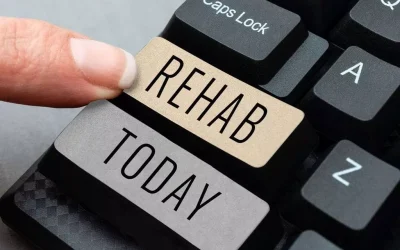Content
An analogy that might be helpful in understanding how to notice versus engage with your thoughts is thinking of the thoughts as clouds floating in the sky. Notice how clouds of thoughts come and go rather than following a specific cloud on its path. You might find that simply noticing your thoughts without judgment weakens them and you feel more in control of your feelings and reactions to them. You can set a timer so that you don’t have to keep looking at a clock.

We do not receive any commission or fee that is dependent upon which treatment provider a caller chooses. There are many types of unhelpful thought patterns, or cognitive distortions. For example, after making a mistake, you might think “that was stupid.” The more you dwell on the situation, the more you might start to believe that, actually, you are stupid. Derived from the Sanskrit word “Yuj,” meaning “to unite,” yoga is traditionally defined as the union of the individual self with the supreme self.
Mindfulness Exercises to Strengthen Your Recovery
First, it helps you connect with other people, especially other people recovering from addiction. Having a strong social support system and feeling of belonging is one of the best predictors of a successful recovery. However, this support can be challenging to build, as many people who are newly sober often feel isolated and ashamed. Practicing mindfulness can encourage those feelings of compassion by allowing you to see your own situation more clearly and become less protective of your own self-image. At Maryland Recovery, we understand the benefits of mindfulness exercises when it comes to addiction treatment.
It can boost your sense of well-being and help you cope with drug cravings and other recovery-related challenges. This is indeed a challenge, as MBIs with demonstrated efficacy in Stage II trials may fail to show effectiveness in Stage III and IV trials when delivered by community clinicians. Yet, work now needs to be done to understand the feasibility, acceptability, and impact of delivering MBIs in addiction treatment settings. In guided meditation, you will work with a trained meditation or mental health professional. It is a judgment-free way to pay attention to one’s emotions in a certain moment. Mindfulness requires practice, often through activities such as yoga or meditation.
Alcoholics Resource Center
Body scans, mindful walking, and outdoor exercise, along with yoga, mindful breathing, and the 5 senses exercise, are mindfulness techniques that can help boost your inner calm. Mindfulness can help you become more aware of your thoughts, feelings, and physical sensations in the present moment. This can help you identify triggers that may lead to relapse and take steps to avoid or manage them. You will start to notice the patterns and habits of your mind https://ecosoberhouse.com/ and body, including the triggers that set off negative thoughts or emotions. Practicing mindfulness in sobriety is about bringing your attention to the present moment, letting go of judgment and distraction, and focusing on your thoughts, emotions, and physical sensations. One core process that can be influenced by mindfulness practice is our ability to observe our thoughts, emotions, and sensations without reacting to fix them, hide them, or solve them.
While spiritual meditation is highly individual, the intention behind the practice is to connect to something greater than you in order to activate higher consciousness and awareness of yourself. People facing addiction spend most of their lives running on autopilot, drifting through life not in control or even aware of how they reached such a low point, further catapulting them into a downward spiral of unhappiness. Furthermore, meditation releases an influx of endorphins, brain chemicals that act as natural painkillers, inducing a euphoric high that can effectively relieve pain. Meditation can effectively help sufferers overcome such self-destructing impulses by training the brain to objectively observe them come and go rather than try and suppress or ignore them.
Meditation for Addiction Recovery
Spiritual meditation is used in nearly all religions and spiritual traditions where the focus is directed toward finding a connection with God, the universe, or a higher power. Such conscious examination compels meditation for addiction recovery you to address the true source of your unhappiness and empowers you to take conscious action to bring your life back into harmony. The AlcoholicsAnonymous.com helpline is free, private, and confidential.
- If your mind wanders, gently redirect your attention back to your breath.
- Substance use disorders often begin as a means of avoiding painful emotions, intrusive thoughts, social anxiety, and physical pain.
- I choose Renewal Lodge because of the vision of its mission and the dedication of its team.
It’s a popular and long-lasting therapy with origins in Buddhist rituals and modern psychiatry alike, with a lot of benefits to explore. The purpose of focused meditation is to concentrate wholly on a single focal point, whether it’s your breath, bodily sensations, physical objects, or specific activities. Release any thoughts and feelings that arise throughout the process without allowing yourself to become absorbed, and then redirect your attention back to your focal point of choice. Ultimately, addiction and the unpleasant feelings that accompany it is a result of not living consciously.
Do MBIs decrease addictive behavior by reducing activation of bottom-up neural circuitry to drug cues? Finally, dynamic effects of mindfulness practice on addictive responses are unknown, and could be elucidated through functional neuroimaging techniques with high temporal resolution like electroencephalography (EEG) or magnetoencephalography (MEG). For instance, does the acute state of mindfulness attenuate initial attentional orienting to drug cues?
That’s why some recovery groups encourage members to bring candles, essential oils, and other aromatic materials. Group members can then discuss their favorite scents and the feelings they provide. Though mechanistic research on MBIs has begun to amass, there are few psychophysiological and neuroimaging studies of MBIs as a treatment for addiction.

